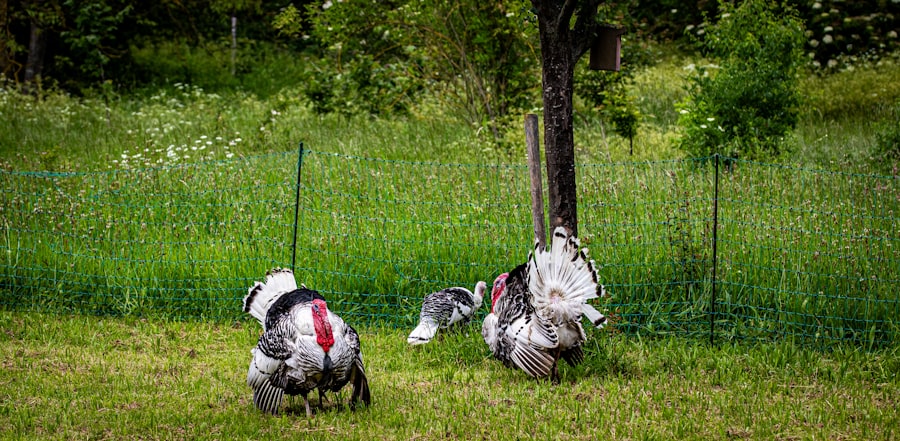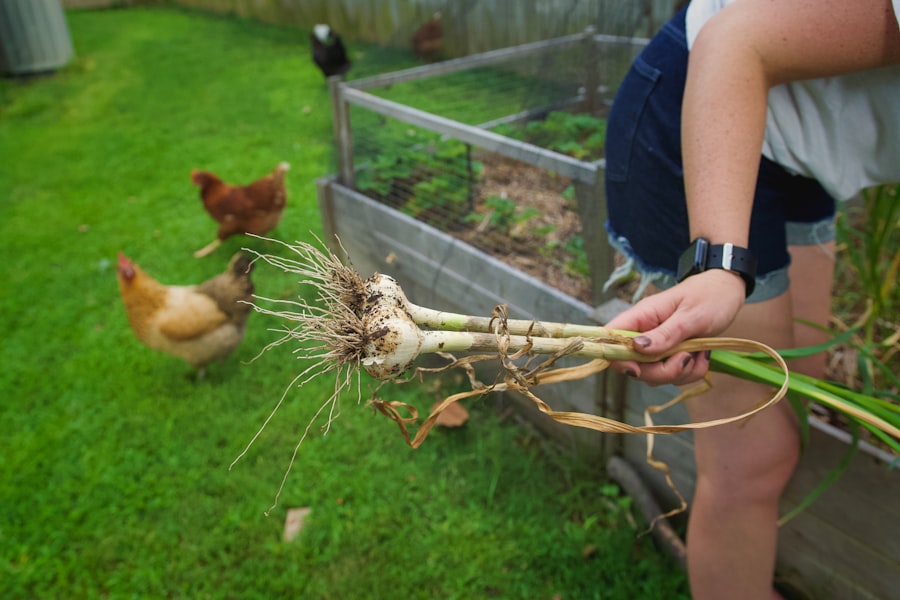Legal considerations are essential when planning to raise chickens in a residential area. Many municipalities have specific ordinances governing backyard poultry keeping, including limits on flock size, coop placement, and noise restrictions. It is crucial to research and comply with local regulations to avoid potential legal issues or disputes with neighbors.
Understanding the legal limits for chicken keeping helps in effectively planning and managing a backyard flock. Knowing the maximum number of chickens allowed informs decisions about coop size, run area, and resource allocation for feed and supplies. This information also guides choices regarding chicken breeds and types that are suitable for the permitted flock size.
Adhering to local regulations ensures a harmonious integration of chicken-keeping practices within residential areas. It allows individuals to enjoy the benefits of raising chickens while respecting community standards and maintaining good relationships with neighbors. Proper research and compliance with legal requirements are fundamental steps in establishing a successful and lawful backyard chicken operation.
Table of Contents
- 1 Assessing Your Garden Space
- 2 Considering the Needs of Chickens
- 3 Choosing the Right Breed
- 4 Providing Adequate Shelter and Protection
- 5 Managing Waste and Odor
- 6 Seeking Local Regulations and Advice
- 7 FAQs
- 7.1 What are the regulations for keeping chickens in a garden in the UK?
- 7.2 How many chickens can I keep in my garden in the UK?
- 7.3 What factors should I consider when deciding how many chickens to keep in my garden?
- 7.4 Do I need to obtain a permit to keep chickens in my garden in the UK?
- 7.5 What are the benefits of keeping chickens in my garden?
Key Takeaways
- Legal limit for keeping chickens varies by location
- Assess available garden space for keeping chickens
- Consider the needs of chickens for food, water, and shelter
- Choose a breed of chicken that suits your space and needs
- Provide adequate shelter and protection from predators
- Manage waste and odor to keep the environment clean
- Seek local regulations and advice before keeping chickens
Assessing Your Garden Space
Assessing Your Garden Space
Consider the size and layout of your garden, as well as any existing structures or landscaping that may impact the placement of a chicken coop and run. Additionally, take into account the amount of sunlight and shade in different areas of your garden, as well as any potential hazards or obstacles that could pose a risk to your chickens.
Designing the Perfect Chicken Coop and Run
Assessing your garden space will also help you determine the appropriate size and design of the chicken coop and run. Consider factors such as ventilation, predator protection, and ease of access for cleaning and maintenance when planning the layout of your chicken housing.
Harmonizing Gardening and Chicken-Raising
Think about how the presence of chickens will impact your garden activities and vice versa, and make any necessary adjustments to accommodate both your gardening and chicken-raising needs.
Considering the Needs of Chickens

When planning to raise chickens in your garden, it is crucial to consider the needs of these birds to ensure their health and well-being. Chickens require a balanced diet consisting of high-quality feed, fresh water, and occasional treats such as fruits and vegetables. Additionally, they need access to a suitable living environment with adequate space, ventilation, and protection from predators and the elements.
Furthermore, considering the needs of chickens also involves providing opportunities for exercise, dust bathing, and social interaction. Chickens are social animals that thrive in a flock environment, so it is important to plan for the appropriate number of birds to prevent overcrowding and potential behavioral issues. Additionally, providing enrichment activities such as perches, nesting boxes, and toys can help keep your chickens active and engaged, contributing to their overall health and happiness.
Choosing the Right Breed
Selecting the right breed of chickens is a crucial decision when planning to raise poultry in your garden. Different breeds have unique characteristics in terms of size, egg production, temperament, and cold or heat tolerance. Consider your specific goals for raising chickens, whether it be for eggs, meat, pest control, or simply as pets, and choose a breed that aligns with your priorities and preferences.
Furthermore, choosing the right breed also involves considering the climate and environment in which you live. Some breeds are better suited for cold weather, while others thrive in hot climates. Additionally, think about the space available in your garden and the local regulations regarding chicken breeds to ensure that you select a breed that is suitable for your specific situation.
Researching different breeds and seeking advice from experienced chicken keepers can help you make an informed decision that will set you up for success in raising chickens in your garden.
Providing Adequate Shelter and Protection
Creating a safe and comfortable living environment for your chickens is essential for their health and well-being. When raising chickens in your garden, it is crucial to provide adequate shelter and protection from predators, extreme weather conditions, and other potential hazards. This includes building a secure coop with proper ventilation, nesting boxes, roosts, and easy access for cleaning and maintenance.
Furthermore, providing adequate shelter and protection also involves designing a predator-proof run where your chickens can safely roam and exercise. Consider using hardware cloth or welded wire fencing to prevent predators from digging under or climbing over the enclosure. Additionally, provide cover from sun, rain, and wind within the run to ensure that your chickens have a comfortable outdoor space to enjoy while staying protected from potential threats.
Managing Waste and Odor

Regular Cleaning Routine
Implementing a regular cleaning routine for the coop and run is essential to minimize odor and prevent the buildup of waste that can attract pests and pose health risks to your chickens. Consider using absorbent bedding materials such as straw or wood shavings in the coop to help control moisture and odor.
Composting System
Managing waste and odor also involves implementing a composting system for chicken manure and bedding materials. Composting not only helps reduce waste but also produces nutrient-rich fertilizer for your garden.
Designated Composting Area
Consider creating a designated composting area away from the chicken coop to safely process chicken waste while minimizing odor and potential contamination.
Seeking Local Regulations and Advice
Before embarking on raising chickens in your garden, it is important to seek local regulations and advice from experienced chicken keepers or agricultural extension services in your area. Understanding the specific ordinances and regulations regarding keeping poultry will help you stay compliant with the law while enjoying the benefits of raising chickens in your garden. Additionally, seeking advice from local experts can provide valuable insights into best practices for chicken care, coop design, predator protection, and other important aspects of poultry husbandry.
Furthermore, seeking local regulations and advice also involves connecting with other chicken keepers in your community through local clubs or online forums. Building a network of support with fellow chicken enthusiasts can provide valuable resources, tips, and encouragement as you embark on your chicken-raising journey. Additionally, learning from others’ experiences can help you avoid common pitfalls and make informed decisions that will contribute to the success of raising chickens in your garden.
If you’re considering keeping chickens in your garden in the UK, you may also be interested in learning about the best setup for a garden chicken coop. Poultry Wizard offers a helpful article on this topic, providing guidance on how to create a suitable living space for your feathered friends. Check out their article on garden chicken coops for more information.
FAQs
What are the regulations for keeping chickens in a garden in the UK?
In the UK, there are regulations regarding the number of chickens you can keep in your garden. These regulations may vary depending on the local council, so it’s important to check with them before keeping chickens.
How many chickens can I keep in my garden in the UK?
The number of chickens you can keep in your garden in the UK is often determined by the size of your garden and the specific regulations set by your local council. As a general guideline, a small garden may be suitable for 2-4 chickens, while a larger garden may accommodate 6-8 chickens.
What factors should I consider when deciding how many chickens to keep in my garden?
When deciding how many chickens to keep in your garden, it’s important to consider the size of your garden, the amount of space available for the chickens to roam, and the local regulations. Additionally, you should consider the time and resources you have available to care for the chickens.
Do I need to obtain a permit to keep chickens in my garden in the UK?
In some areas of the UK, you may need to obtain a permit or permission from your local council to keep chickens in your garden. It’s important to check with your local council to determine if a permit is required.
What are the benefits of keeping chickens in my garden?
Keeping chickens in your garden can provide a sustainable source of fresh eggs, natural pest control, and the opportunity to engage in a rewarding and educational hobby. Additionally, chickens can help with garden maintenance by turning over soil and providing natural fertilizer.
Meet Walter, the feathered-friend fanatic of Florida! Nestled in the sunshine state, Walter struts through life with his feathered companions, clucking his way to happiness. With a coop that’s fancier than a five-star hotel, he’s the Don Juan of the chicken world. When he’s not teaching his hens to do the cha-cha, you’ll find him in a heated debate with his prized rooster, Sir Clucks-a-Lot. Walter’s poultry passion is no yolk; he’s the sunny-side-up guy you never knew you needed in your flock of friends!







